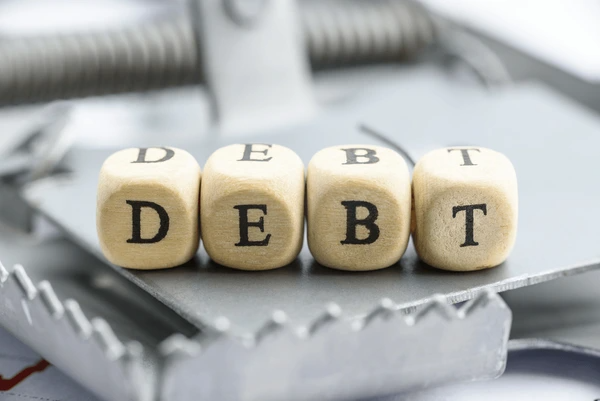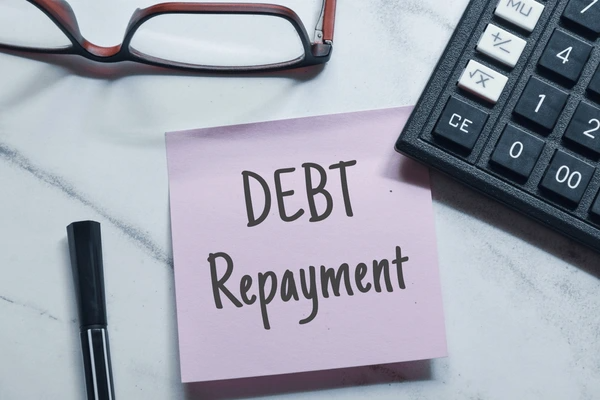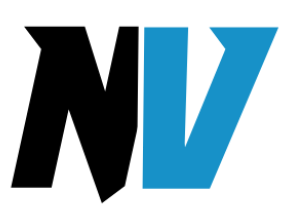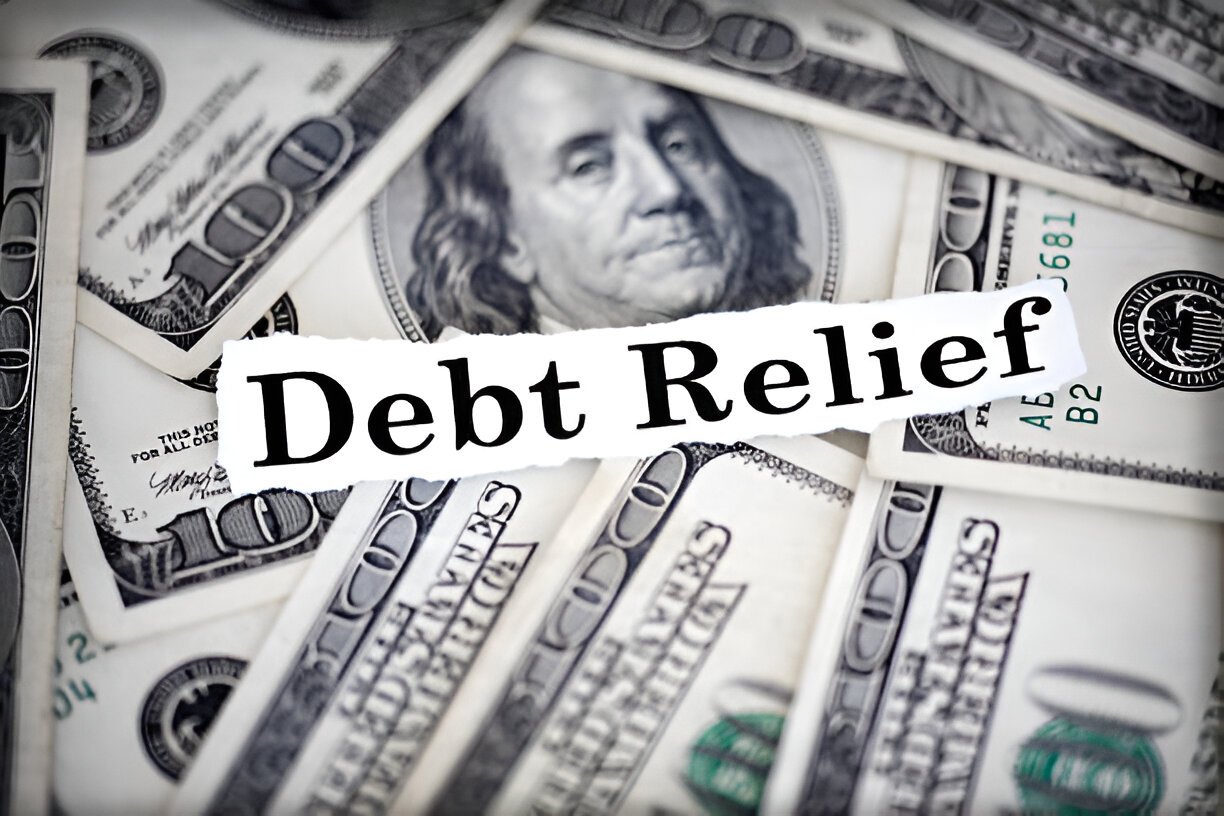Understanding how to pay off debt before retirement is crucial for achieving financial stability in your later years. Carrying debt into retirement can strain a fixed income, making it difficult to cover daily expenses or enjoy the lifestyle you’ve envisioned. By eliminating debt, you can maximize your retirement savings and allocate your income to your needs and goals, rather than servicing loans or credit card balances.
Start by identifying and prioritizing your debts. High-interest debt, like credit cards, should take precedence as it can quickly grow and erode your savings if not addressed. Mortgages, while typically lower in interest, should also be paid off to free up additional income during retirement. By understanding these priorities and implementing targeted repayment strategies, you can approach retirement with greater financial security and peace of mind.
Taking the following steps will help you systematically pay off debt and prepare for a stress-free retirement.
How to Pay Off Debt Before Retirement: Assessing Your Debt Situation
Assessing your debt situation is a crucial first step in understanding how to pay off debt before retirement. Begin by creating a comprehensive list of all your outstanding obligations, including high-interest credit card balances, which can quickly become unmanageable if not addressed. Include student loans, which may carry lower interest rates but can still pose a significant financial burden, as well as mortgages—often the largest debt for many individuals—and personal loans with variable interest rates that could rise and impact your repayment plan.
Understanding the specifics of your debt, such as interest rates and repayment terms, is essential for effective debt management. Fixed-rate debts provide predictability, while variable-rate debts can become more expensive if interest rates increase. Additionally, loan terms influence your repayment strategy, as shorter terms may require higher monthly payments but save on interest over time whereas longer terms spread costs but increase the total interest paid.
Once you’ve itemized your debts and reviewed their terms, calculate the total amount owed and your combined monthly payments. This analysis offers a clear overview of your financial obligations, helping you prioritize debts for repayment. Focus on clearing high-interest debts first to minimize overall costs, and work strategically toward eliminating significant balances like mortgages. This structured approach will help you achieve financial freedom and prepare for a secure and debt-free retirement.

How to Pay Off Debt Before Retirement: Creating a Debt Repayment Plan
Creating a debt repayment plan is vital for managing how to pay off debt before retirement effectively. Start by developing a budget that aligns your current living expenses with your debt obligations. Track all income sources and document every expense to identify how much you can allocate to debt repayment. Look for areas to cut back, such as reducing dining out, entertainment, or unused subscriptions. These savings can then be directed toward clearing your debts more aggressively, helping you make consistent progress.
Choose a repayment strategy that aligns with your financial goals. The Debt Snowball Method focuses on paying off smaller debts first, providing quick wins that boost morale and motivation. Alternatively, the Debt Avalanche Method targets debts with the highest interest rates, saving you more money over time by reducing interest costs. While the avalanche method is financially advantageous, it may require patience if your high-interest debts also have large balances. Select the approach that best fits your situation and commitment level.
Set realistic goals and deadlines to maintain momentum. Break your repayment plan into smaller milestones, such as paying off a specific credit card or loan within a set timeframe. Regularly evaluate your progress and adjust as necessary to stay on track. These goals provide a clear direction and keep you motivated, ensuring you’re debt-free and financially prepared for retirement.
How to Pay Off Debt Before Retirement: Increasing Your Income
Boosting your income is a powerful way to accelerate how to pay off debt before retirement. Exploring side gigs or freelance opportunities can provide immediate financial relief. Consider leveraging your skills to consult in your field, teach, write for blogs, or even work in the gig economy through rideshare or delivery services. Dedicating extra time to these ventures allows you to allocate additional funds toward debt repayment, hastening the process and easing your financial burden as retirement approaches.
Another effective strategy is to pursue a raise or promotion in your current job. Assess your contributions and achievements to build a solid case for increased compensation. Demonstrating your value to your employer could result in a higher salary or an advanced role, providing immediate and long-term financial benefits. Further, investing in skill development through training or certifications can enhance your qualifications, improving your chances of career advancement. The extra income from these efforts can be directed toward clearing larger debts and securing your financial future.
Selling unnecessary assets can also provide a quick cash infusion to tackle debt. Identify items you no longer need, such as electronics, furniture, or vehicles, and sell them on platforms like eBay, Facebook Marketplace, or at local consignment shops. These funds can help pay off debts more rapidly while simplifying your lifestyle. By increasing your income through these methods, you’ll gain greater financial flexibility, reduce stress, and stay on track for a debt-free retirement.
How to Pay Off Debt Before Retirement: Reducing and Managing Expenses
Effectively reducing and managing expenses is key to tackling how to pay off debt before retirement. Start by identifying areas in your budget where unnecessary spending can be eliminated. Cancel unused subscriptions, cut back on dining out, and seek cost-effective alternatives for daily purchases. Review utility bills and insurance policies to ensure you’re paying the lowest possible rates. Redirecting the money saved from these changes toward debt repayment accelerates progress and reduces financial strain, helping you retire debt-free.
Refinancing high-interest debts is another smart strategy to lower your expenses. By securing a loan with a lower interest rate, you can significantly reduce monthly payments and minimize the total interest paid over time. This option is particularly beneficial if your credit score has improved or market rates have dropped since you first incurred the debt. Refinancing makes repayment more manageable, freeing up additional cash flow to allocate toward other priorities, such as retirement savings.
Loan consolidation can also simplify your financial obligations. Combining multiple debts into a single loan with a lower interest rate reduces the hassle of managing multiple payments. This approach often lowers overall interest costs and streamlines monthly obligations, making it easier to stay on track with your repayment plan. By implementing these strategies, you can reduce financial stress, eliminate debt efficiently, and prepare for a secure and comfortable retirement.
5. Utilizing Retirement Accounts Wisely
Utilizing your retirement accounts wisely is essential for maintaining a balance between paying off debt and securing your future financial stability. While withdrawing funds from your retirement accounts to eliminate debt may be tempting, it’s important to recognize the long-term impact of such a decision. Early withdrawals can result in significant tax penalties and reduce the amount of money you’ll have available during retirement, potentially jeopardizing your financial security in your later years. It’s critical to balance the advantages of debt repayment in the short term with the possibility of income loss and probable reduction in retirement savings.
Balancing debt repayment with continued contributions to your retirement accounts is key to maintaining financial health. It’s important to continue contributing to your retirement savings, particularly if you have access to employer-matching contributions, as this is essentially free money that enhances your retirement fund. While it makes sense to prioritize paying off high-interest debt first, you should not completely neglect your retirement savings. The power of compound interest means that the money you save now will grow significantly over time, providing you with a more substantial nest egg when you retire.
Additionally, some retirement accounts, like a 401(k), offer the option to take out loans against your savings. This can be a low-interest way to access funds for debt repayment without permanently depleting your retirement savings. However, it’s crucial to repay these loans on time to avoid penalties and ensure that your retirement savings remain intact. Using this option requires careful consideration and discipline, as the goal should be to minimize any negative impact on your long-term financial security while managing your debt effectively.
6. Seeking Professional Advice
Seeking professional advice is a valuable step in effectively managing your debt before retirement. Consulting a financial advisor can be particularly beneficial, as they can help you develop a customized debt repayment plan that aligns with your overall retirement goals. Financial advisors bring expertise in balancing debt reduction with savings strategies, ensuring you’re on track to meet your financial objectives. They can provide insights into the best ways to manage your debt while still maximizing your retirement savings, helping you prepare for a financially secure future.
Working with a credit counsellor is another option to consider, especially if you’re struggling with debt management on your own. Credit counsellors can offer personalized advice and may be able to negotiate with your creditors to lower interest rates or extend payment terms. They can assist in creating a debt management plan that makes your debt more manageable and fits within your budget. By leveraging their expertise, you can potentially reduce your monthly payments and gain a clearer path toward becoming debt-free.
Exploring debt management programs is also a practical solution for those dealing with multiple debts. These programs consolidate your payments into a single monthly payment made to a counselling agency, which then distributes the funds to your creditors. This approach simplifies the repayment process and can often result in reduced interest rates or fees, making it easier to manage your debt load. By participating in a debt management program, you can streamline your financial responsibilities and focus on achieving your goal of a debt-free retirement.
7. Maintaining Motivation and Discipline
Reaching your financial objectives before retirement depends on your ability to stay motivated and disciplined during the debt payback process. One effective way to stay motivated is by tracking your progress and celebrating milestones along the way. Regularly reviewing how much debt you’ve paid off can provide a sense of accomplishment and reinforce your commitment to becoming debt-free. Celebrating these milestones, even with small rewards, helps to keep your spirits high and encourages you to stay on course, turning the often arduous process of debt repayment into a series of achievable victories.
Staying focused on long-term retirement goals is another important aspect of maintaining motivation. Continuously remind yourself of the benefits that a debt-free retirement will bring, such as financial freedom, reduced stress, and the ability to fully enjoy your retirement years. Visualizing your life without debt can serve as a powerful motivator, especially when faced with the inevitable challenges that come with managing and paying off debt. Keeping your eyes on the bigger picture helps you to push through difficult times and remain committed to your financial plan.
However, setbacks are a natural part of any long-term financial strategy, and it’s essential to remain flexible and resilient. If you encounter unexpected financial difficulties, such as a loss of income or an emergency expense, it’s important to reassess your situation and adjust your debt repayment plan accordingly. This might mean temporarily reducing payments or revisiting your budget to find new areas where you can save. The key is to stay adaptable and not let setbacks derail your overall progress. By maintaining discipline and a positive outlook, you can overcome obstacles and continue working towards a debt-free retirement.

8. Preparing for Retirement After Debt Repayment
Preparing for retirement after paying off your debt involves shifting your financial focus toward building security and ensuring long-term sustainability. First things first, create a sizable emergency fund. You can devote more of your salary to this fund—which should ideally cover three to six months’ worth of living expenses—now that you are debt-free. An emergency fund acts as a financial safety net, protecting you from unexpected events such as medical emergencies, home repairs, or other unforeseen expenses that could otherwise disrupt your retirement plans.
With your debt behind you, maximizing your retirement savings becomes a top priority. The funds that were previously used for debt repayment can now be redirected into your retirement accounts, such as a 401(k), IRA, or other savings vehicles. By increasing your contributions, you can take full advantage of compound interest, which will significantly boost your retirement nest egg over time. This is an opportune moment to reassess your retirement goals and ensure your savings plan aligns with your desired retirement lifestyle.
Lastly, to guarantee that your retirement funds last for the duration of your retirement years, you must develop a sustainable withdrawal strategy. This involves determining a safe withdrawal rate that balances your need for income with the longevity of your savings. It’s important to consider tax implications, as withdrawals from certain accounts may be subject to taxes, which can impact your overall income. Additionally, plan for healthcare costs, which are often a significant expense in retirement. By developing a comprehensive withdrawal strategy, you can manage your retirement funds effectively, providing financial stability and peace of mind as you enjoy your retirement.
Conclusion
Successfully paying off debt before retirement involves a multifaceted approach. Key strategies include creating a detailed budget, selecting the most effective debt repayment method, boosting your income through side gigs or raises, cutting unnecessary expenses, and seeking professional advice when needed. By implementing these strategies, you can systematically reduce your debt and enhance your financial stability, paving the way for a more secure retirement.
Once you’ve achieved debt freedom, it’s important to maintain financial discipline and continue planning for the future. A happy and secure retirement can be achieved by laying a strong economic foundation, which includes maximizing retirement savings and keeping a sizable emergency fund. Staying proactive in managing your finances ensures you can enjoy your retirement years without the stress of debt, allowing you to focus on what truly matters to you.

